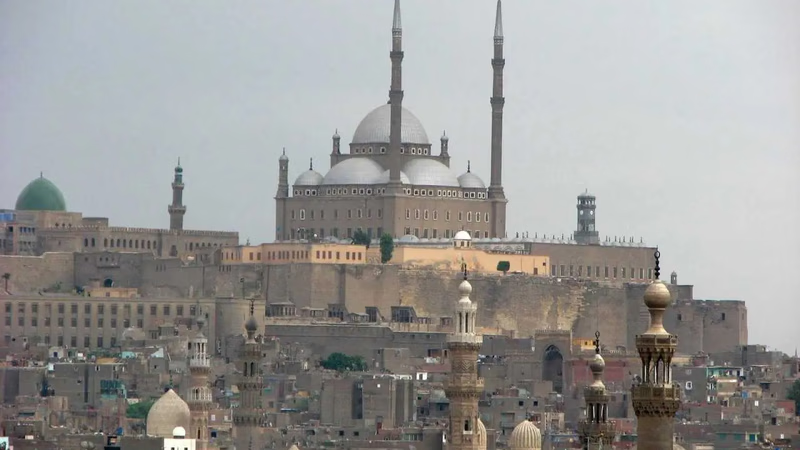
Explore Egypt"s rich culture and vibrant trade opportunities. "
Egypt's ancient civilization has had a profound impact on its culture. The country is renowned for its majestic pyramids, temples, and archaeological sites, which reflect the achievements and beliefs of ancient Egyptians. The culture celebrates its pharaonic past and preserves its traditions through festivals, museums, and historical sites. The official language of Egypt is Arabic. Egyptian Arabic, a dialect spoken in the country, has its unique characteristics. English and French are also commonly understood and spoken, particularly in urban areas and among professionals in the tourism industry.
Egyptian cuisine is diverse and influenced by various cultures and civilizations. Common dishes include staples like ful medames (mashed fava beans), koshari (a mix of rice, lentils, pasta, and sauce), and taameya (Egyptian falafel). Egyptian cuisine often incorporates herbs, spices, and flavors such as cumin, coriander, garlic, and lemon. One of the most important sectors that can be developed in Egypt is the sectors related to administrative policies, the status of administrative policies in this country includes the items that have assessed certain gains and losses. The political situation in Egypt is under control and the financial corruption within the companies has been minimized.
The state of health care in Egypt has improved than before. The country's hospitals have often minimized the privatization aspect, and the cost environment has improved so that people can enjoy a good economic situation. Of course, the tax rate situation in Egypt in certain categories has taken more than 78% growth seriously. In Egypt, economic structures and growing sectors have been pursued in such a way that people can also enter the construction and architecture sectors. Architecture in this country depends on precise economic plans.
In the educational path as well as in the Egyptian educational institutions, it has been seen that industrial progress is pursued in such a way that individuals can create a better growth situation. The country's social security rate has improved in several ways in terms of economic classifications. Of course, the government has tried to keep the tax profit in this country to a minimum. As it is clear in the laws of Egypt, people can only ask someone their name once! In this country, you have no right to disrespect the existing beliefs and superstitions.
Under no circumstances are you allowed to influence politics. In any case, there is a current in the laws of Egypt that may be a little strange from the point of view of the Iranian people, for example, the flag of Egypt indicates a deity to some people. Of course, the principles and laws of Egypt have shown that the language of Egypt is one of the most important parts of respect. Exports to Egypt as one of the countries located in the Middle East is considered as one of the target markets for Iran's non-oil exports. Iran has a good exchange capacity with Egypt.
However, due to the turbulent political relations between the two countries, it has not been able to use its potential export capacity in practice. Serbia is located south of the Mediterranean Sea and west of the Red Sea. It is bordered on the west by Libya, on the south by Sudan, and on the Sinai Peninsula by Israel and the Gaza Strip in Palestine.
The capital of Egypt is Cairo and other important cities are Alexandria, Aswan, Giza, Fium, and Port Saeed. Egypt is the most populous country in the Middle East and the third most populous country in Africa. The Egyptian economy has one of the most diverse sources of income in the Middle East. Flax and clover are the two main export products of Egypt. Its major industries are cement, steel, wood, and food industries. Egypt is known as the world leader in the production and cultivation of dates.
The majority of Egyptians are adherents of Islam, with Sunni Muslims comprising the largest religious group. Islamic traditions and practices influence many aspects of daily life, including religious observances, festivals, and social customs. There is also a significant Christian minority, primarily belonging to the Coptic Orthodox Church. Family plays a central role in Egyptian society, with strong family ties and close-knit communities. Respect for elders and the importance of kinship are highly valued. Traditional gender roles are still prevalent, with men typically being the primary breadwinners and women taking on domestic responsibilities.
-
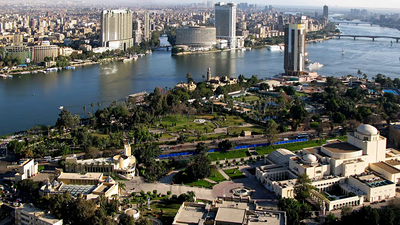
Egypt"s population exceeds 100 million, providing a vast labor force and consumer market for businesses. This demographic advantage allows companies to access a diverse talent pool and cater to a significant domestic market. The growing middle class and increasing disposable income present opportunities for both local and international firms to expand their operations. Companies contribute to job creation, addressing unemployment while boosting economic development. The corporate tax rate stands at approximately 25%, with personal income tax rates varying from 22. 5% to 34%. Sales tax has increased from 10% to 14%, while social security remains stable at around 40%. Egypt"s strategic location in northeastern Africa, bordered by Libya, Sudan, the Mediterranean Sea, Israel, and Palestine, enhances its trade potential.
The country"s rich cultural heritage and historical significance attract tourism and investment. Companies operating in Egypt not only generate revenue but also invest in employee training, enhancing workforce skills and employability. This investment fosters long-term economic growth and improved living standards for the population. "
-

Egypt"s economy is diverse and strategically located, making it a vital trade partner in the Middle East. Key sectors include agriculture, manufacturing, services, and energy. The country imports a variety of goods such as agricultural products, machinery, chemicals, and consumer items. Trade with Egypt supports economic growth by facilitating development projects and enhancing market access. Its geographical position near the Suez Canal further boosts its importance in global trade routes. Despite political challenges and external pressures, particularly from the US regarding Iran-Egypt relations, Egypt remains a promising destination for exports due to its large market size and economic potential. The country’s non-oil export strategies are crucial for expanding trade relations with regional partners like Iran. While there are hurdles such as tariffs and regulatory issues, ongoing reforms aim to improve the business environment for foreign investors.
Overall, engaging in trade with Egypt not only benefits individual economies but also contributes to regional stability and development. "
-
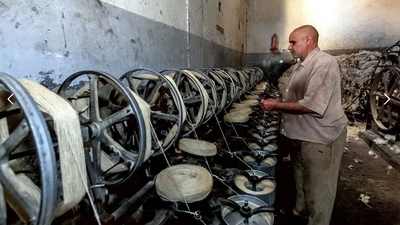
Egypt stands as a pivotal economic force in the MENA region, characterized by its strategic location and diverse economy. The country boasts a well-developed financial sector, with Cairo serving as a hub for banking and financial services. The Egyptian Exchange attracts both domestic and international investors, reflecting the country"s robust economic framework. Egypt"s active participation in international trade is underscored by its membership in the WTO and various trade agreements with key partners like the EU, Arab nations, the US, and China. The Suez Canal enhances Egypt"s significance in global maritime trade. Recent economic indicators show positive growth trends in import-export sectors and foreign direct investment (FDI), alongside ongoing government reforms aimed at improving the business environment. Despite challenges such as foreign debt and fluctuating currency values, Egypt"s commitment to attracting investment in energy, infrastructure, and manufacturing remains strong. Additionally, tourism plays a crucial role in the economy, contributing significantly to foreign exchange earnings.
Overall, Egypt"s strategic initiatives position it favorably within regional trade dynamics. "
-

Cairo, the capital of Egypt, serves as the political, economic, and cultural center of the nation. With a population exceeding 20 million, it is one of Africa"s largest cities. Cairo is renowned for its historical landmarks such as the Great Pyramids of Giza and the Egyptian Museum. The city boasts modern infrastructure alongside its rich heritage. Alexandria, Egypt"s second-largest city, is known for its Mediterranean charm and historical sites like the Citadel of Qaitbay. Giza is famous for its pyramids and attracts numerous tourists. Other notable cities include Port Said, recognized for its luxurious atmosphere; Suez, a hub for investment; and Luxor, often called the world"s largest open-air museum due to its ancient temples and tombs. The Greater Cairo area significantly contributes to Egypt"s GDP and houses most private sector services.
Despite calls for decentralization, government functions remain concentrated in Cairo. The city also has a thriving informal economy that employs a large portion of its workforce. Aswan, located near Sudan, is known for its agricultural significance due to the Nile River and features attractions like Nubian villages and temples. Overall, Egypt"s cities offer diverse economic opportunities and cultural experiences. "
-
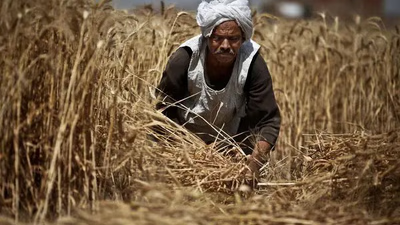
Egypt"s economy is significantly influenced by agriculture, particularly due to the fertile Nile River, which supports the cultivation of crops like cotton and wheat. The Suez Canal is another critical economic asset, generating substantial revenue through tolls from ships. In 2020, Egypt"s GDP grew by 0. 26%, with a total GDP of $332. 90 billion and a notable contribution from the agricultural sector, estimated at over 32%. The country also produces significant amounts of oil and gas, with daily oil production at 688,100 barrels and annual gas production at 76. 40 billion cubic meters. Exports primarily consist of crude oil, petrochemicals, textiles, and hardware.
The manufacturing sector is diverse, encompassing textiles to automotive production. Foreign direct investment (FDI) is actively sought to enhance industrialization and economic growth. Remittances from Egyptians working abroad play a crucial role in supporting domestic consumption. The services sector, including banking and telecommunications, is vital for economic stability. Recent growth rates indicate a positive trend in GDP per capita and various sectors such as agriculture and construction are also experiencing growth. Egypt"s rich cultural heritage boosts tourism, further contributing to the economy by generating foreign currency. "
-
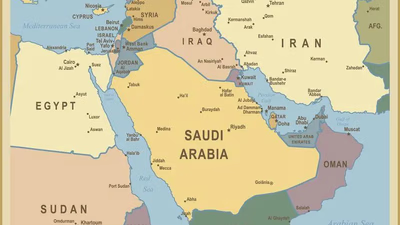
Egypt"s geographical position in northeastern Africa, bordered by Libya, Sudan, the Mediterranean Sea, Israel, and Palestine, influences its climate and economy. The northern region enjoys a temperate climate due to the Mediterranean, while the eastern and western deserts experience extreme temperatures. Economic indicators show a mixed performance; construction contributes 1% to GDP, while mining has seen a 10% growth. The public transport sector also shows a positive trend with a 4% increase. However, the current account balance has faced challenges with a negative GDP situation in recent years. Import and export sectors have shown growth rates of 7% and 3%, respectively. Despite these fluctuations, foreign debt has risen by 9%, and tax rates have increased significantly over time. Cultural traditions in Egypt are evolving, reflecting the complexities of its society. "
-
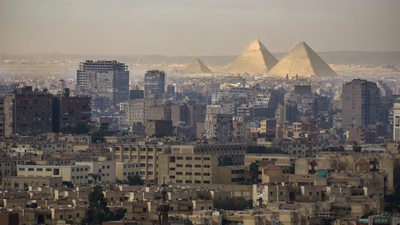
Egypt"s economy is characterized by a GDP of $332. 90 billion, with significant contributions from agriculture, oil, and gas sectors. Approximately 28 million people are employed, with a notable increase in participation rates. The agricultural sector accounts for over 32% of GDP, while oil production stands at 688,100 barrels per day and gas production reaches 76. 40 billion cubic meters annually. Key exports include crude oil, petrochemicals, cotton, textiles, and hardware. Imports primarily consist of machinery, equipment, food products, chemicals, and timber. The annual GDP growth rate is estimated at 7.
70%, with notable increases in various sectors such as agriculture (12%) and mining (10%). Egypt operates under a republican political structure where the president is elected every six years by popular vote. The People"s Council (Majlis al-Shabi) consists of 454 members; most are elected by the public while others are appointed by the president. The prime minister is appointed by the president and leads the cabinet. An advisory council known as Al-Shura also plays a role in governance with its own elected members.
-

Egypt"s rich cultural heritage is deeply rooted in its ancient civilization, characterized by iconic pyramids and temples. The country celebrates its pharaonic past through various festivals and museums, while the Arabic language, particularly the Egyptian dialect, plays a crucial role in daily life. Egyptian cuisine reflects diverse influences, featuring dishes like ful medames and koshari. Recent improvements in healthcare and economic structures have enhanced the quality of life for many Egyptians. The political landscape remains stable, with efforts to minimize corruption and improve social security. However, strict laws govern social interactions and respect for cultural beliefs. Egypt"s economy is diverse, with significant contributions from agriculture and industry, particularly in cement and food production. Despite potential trade opportunities with countries like Iran, political tensions hinder full economic collaboration. Family values are central to Egyptian society, emphasizing strong kinship ties and traditional gender roles.








